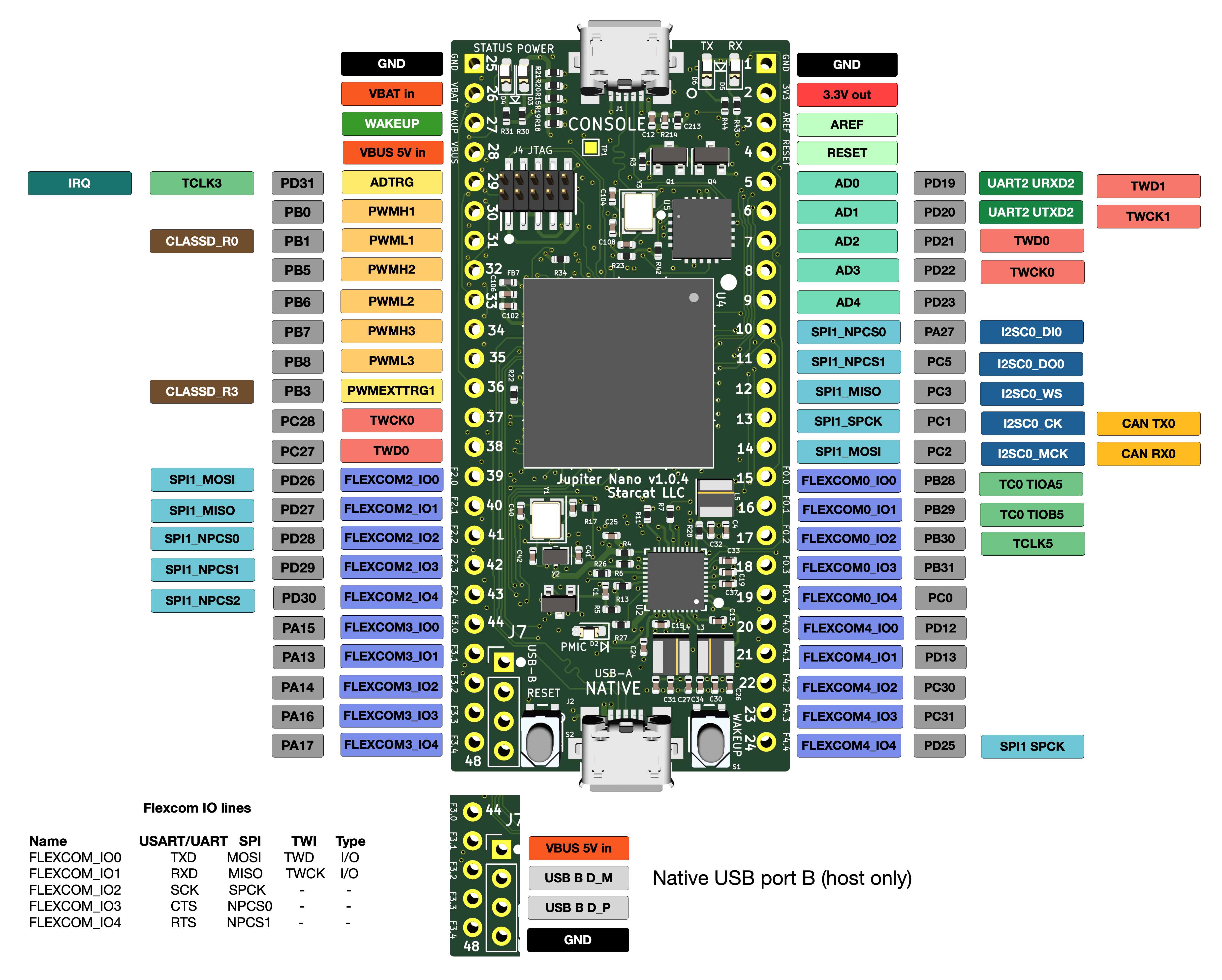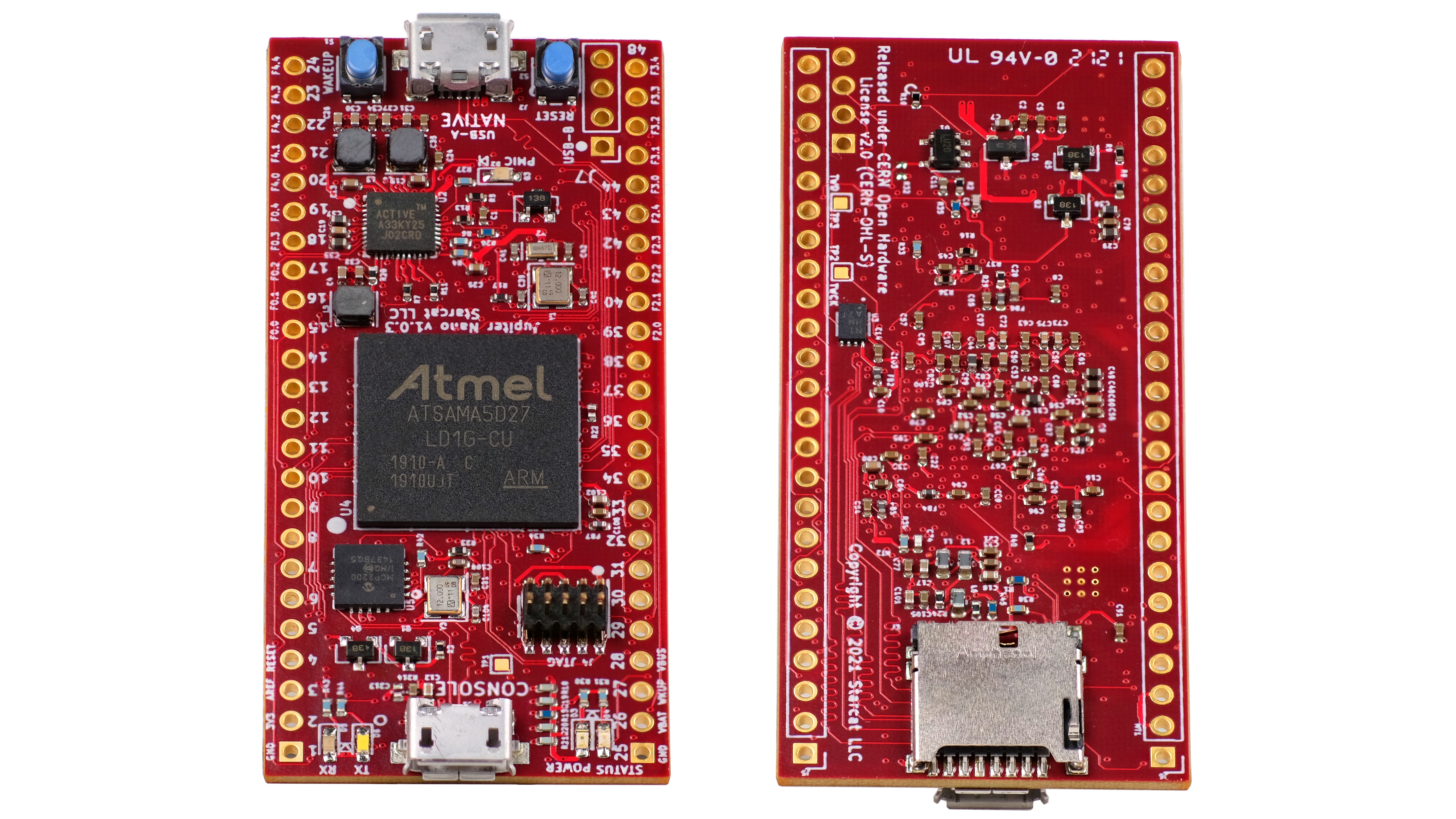This repository contains the KiCAD hardware design files for the Jupiter Nano.
This is a small Open Source Hardware board based on the Microchip SAMA5D27C-LD1G microprocessor. It runs Linux and the Apache NuttX Real Time Operating System (RTOS).
It's available from Crowd Supply at the Jupiter Nano project page.
More information can be found at the Starcat Jupiter Nano product page. Software tools are available at the Jupiter Nano software tools repository on Github.
This board is in production and works.
CERN-OHL-S (Strongly Reciprocal). For more information, see the LICENSE file in this repository, or the CERN Open Hardware License v2.0 page.
- Runs NuttX RTOS or Linux: U-Boot open-source boot loader works for Linux and NuttX (or Linux can be booted directly)
- Size:
- 48-pin form factor
- 2.86 cm x 6.35 cm (1.125" x 2.5")
- Similar in size to Teensy 4.1
- Programming: JTAG port for programming and debugging
- CPU: Microchip SAMA5D27C-LD1G running at 498 MHz
- DRAM: AP Memory AD2100XXX 128 M x 32 LPDDR2 DRAM chip integrated into system-in-package (SIP)
- Power management: Qorvo ACT8945A with integrated LiPo battery charging capability
- Power delivery: Compatible with many LiPo batteries
- Open Hardware: Design can be altered using 100% open source KiCAD software
- 10x more powerful than the Arduino Due:
- ARM Cortex A5 processor running at 498 MHz (7x the clock speed of an Arduino Due)
- 128 MB RAM (1280x the RAM of an Arduino Due)
- Key peripherals (USB, SPI, I²C, Flexcom) support DMA
- I/O:
- USB 2.0 High-Speed port on USB Micro B connector (Port A, 480 Mbps, host or device)
- USB 2.0 High-Speed port on a pin-header connection (Port B, 480 Mbps, host only)
- USB 2.0 Full-Speed debug console port on USB Micro B connector (12 Mbps)
- Micro SD Card slot (50 MHz DDR) supports booting from removable storage, making it impossible to brick the device
- Native SPI, TWI, CAN, and I²SC ports
- 4 FLEXCOMs on I/O pins – flexible serial controller peripherals that can be SPI, USART, or TWI
Adam Feuer
adam@starcat.io
Starcat LLC
Seattle, WA, USA


